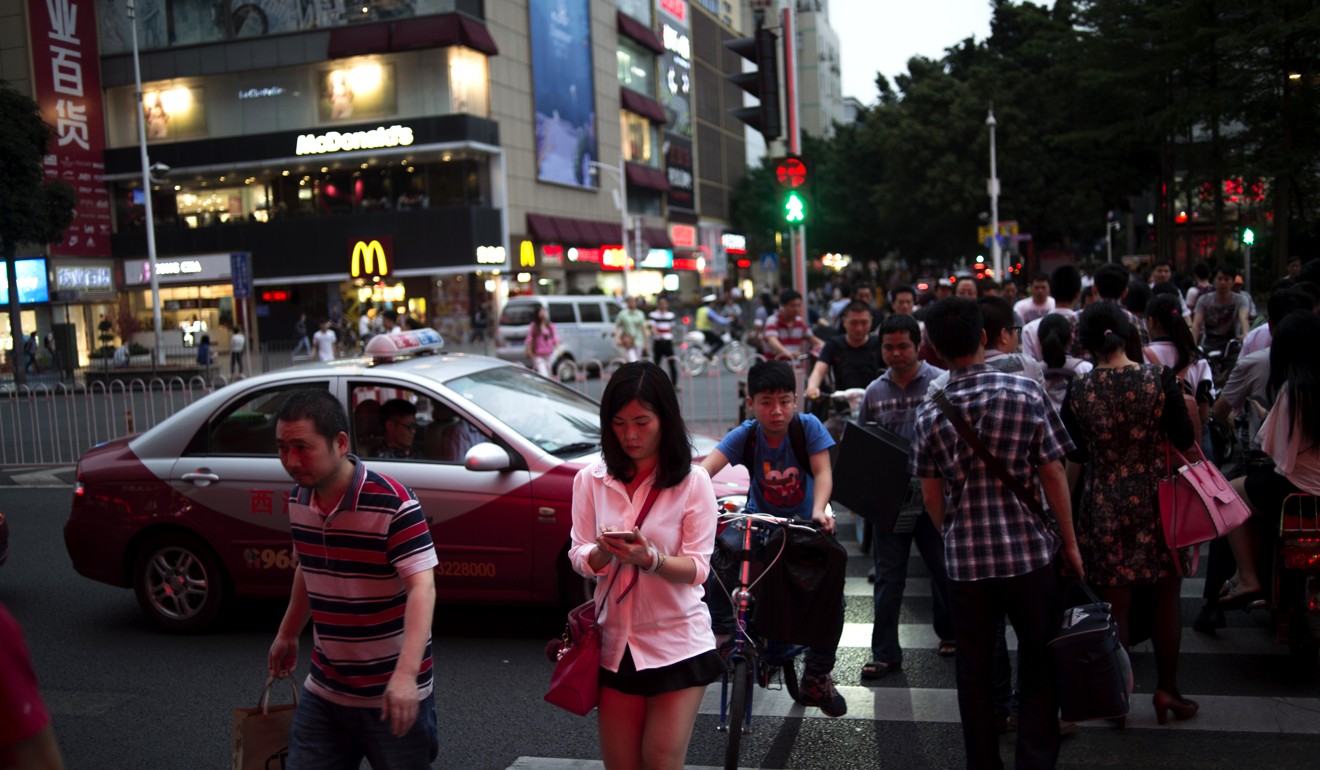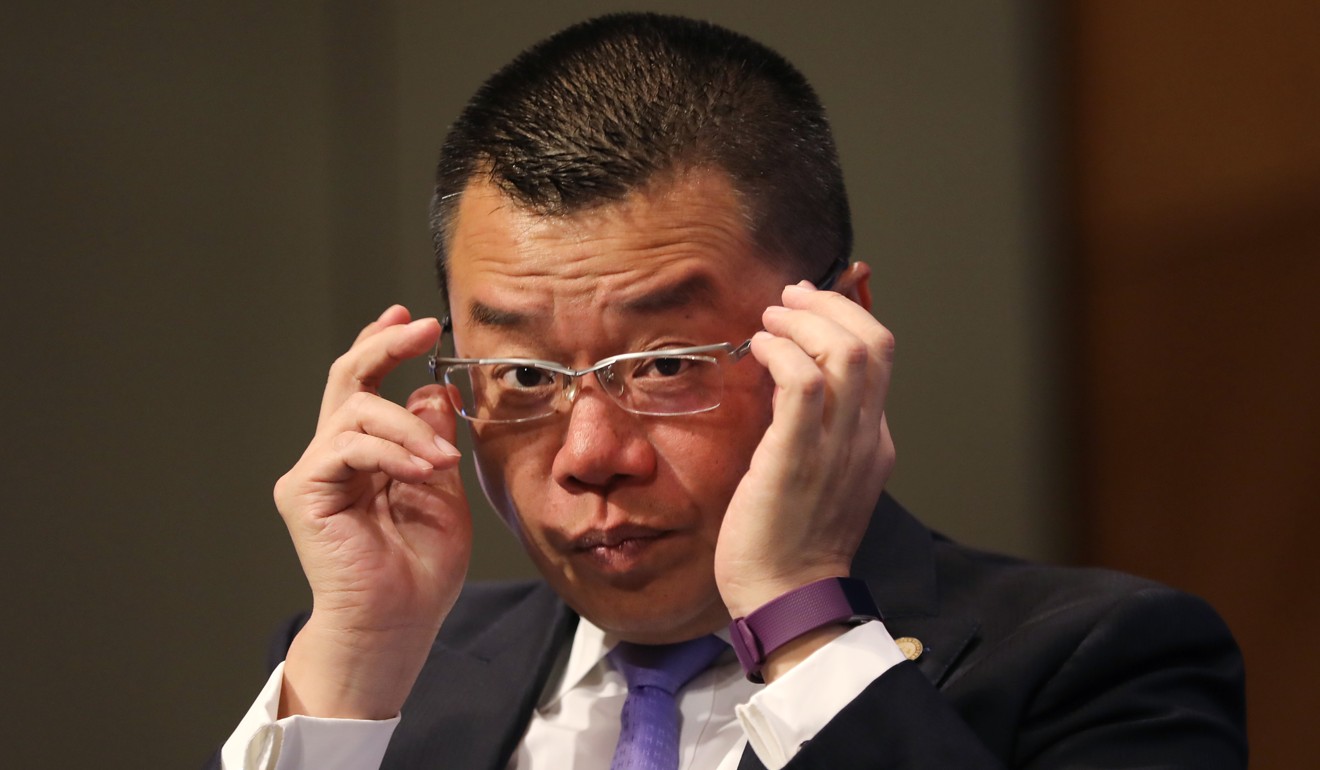
Call to give Hongkongers overseas income tax exemption while working in mainland China
Group of political advisers submit proposal asking that Hong Kong workers be spared from changes to income tax law across the border
Hong Kong political advisers to Beijing have drafted a proposal to call for an exemption for Hongkongers living across the border from a plan to tax them for overseas income, the Post has learned.
The proposal, which was initiated by a number of deputies to China’s top lawmaking and political advisory bodies, was prompted by a recent plan to amend the personal income tax law on mainland, where tens of thousands of Hongkongers are working.
The amendment would require Hongkongers who stay and make their main income on the mainland for more than 183 days a year to pay tax for their other earnings around the world.
Why China’s high-income earners dread the new tax law that will come into effect in January
The Ministry of Finance submitted its amendments to the personal income tax law on June 29 to the National People’s Congress (NPC) Standing Committee – China’s top legislative body, while the congress was in recess. The new law will take effect on first day of 2019 if the bill is passed.
Under the current law, anyone who lives and works on the mainland for a year would need to pay tax on income made overseas, while those who stay less a year only need to pay for the earnings made on the mainland.
For Hongkongers, those who stay across the border for more than 183 days a year for work are now only required to pay taxes for income from their job on the mainland.

Peter Kung Wing-tak, a Hong Kong member of the Chinese People’s Political Consultative Conference (CPPCC) who helped draft the proposal, said the three-point suggestion aimed to get an exemption for the earnings made outside the mainland by Hongkongers who stay across the border for more than 183 days a year.
“I believe Beijing will pay attention to our suggestion,” Kung told the Post.
“As far as I know, in Guangdong province alone, there are 100,000 Hongkongers who are required to pay personal income tax following the mainland’s rule [due to their length of residence across the border every year].”
Kung said he had submitted the proposal in his own name to the CPPCC “two to three weeks ago”. Witman Hung Wai-man, an NPC Hong Kong deputy, said the proposal was yet to be circulated among most of the 36 deputies for endorsement.

Other NPC deputies backing the proposal included Tam Yiu-chung, the city’s sole representative at the NPC Standing Committee, Ma Fung-kwok, leader of the Hong Kong delegation to the NPC, and Tim Lui Tim-leung, senior adviser of PwC Hong Kong.
“We suggest the ministry withdraw this amendment because it will make many Hongkongers on the mainland fall into the net of tax,” Kung said. “In that case, they will be taxed by the mainland authority for gains from their properties, shares and other capital in Hong Kong.”
Both Kung and Hung said even if the threshold to tax income made worldwide was to be halved to 183 days, Hong Kong, Macau and Taiwan residents on the mainland should only be required to pay for earnings made on the mainland.
On the mainland, individual income tax is collected on a monthly basis at a threshold currently at 3,500 yuan (US$512) and set to be raised to 5,000 yuan (US$732) in October. Following the progressive rates, the tax could take up 30 per cent of one’s monthly salary according to Kung, a senior adviser to KPMG China who specialises in China tax.
Bumper tax benefits for 1.88 million Hongkongers thanks to record HK$138 billion surplus, Paul Chan reveals in budget speech
In Hong Kong, tax for the first HK$200,000 (US$25,480) annual income is HK$16,000 (US$2,038) and a rate of 17 per cent is applied to the remainder. Meanwhile, tax payers enjoy a reduction rebate of 75 per cent with a cap at HK$30,000 (US$3,822) this year under government relief measures.
Kung said they also suggested extending the tax concessions for Hongkongers implemented in Hengqin, a special economic zone in Zhuhai, to all nine mainland cities in the Greater Bay Area.
The Hengqin government provides tax-free rebates to Hong Kong employees to make sure that they pay the same amount of tax they would have under the Hong Kong tax system.
The Greater Bay Area is China’s answer to the Silicon Valley that Beijing plans to build in collaboration with 11 cities, including Zhuhai, Hong Kong and Macau.
Andrew Yao Cho-fai, a Hong Kong NPC deputy and chairman of the Hong Kong Shanghai Alliance Holdings, said China must go for two directions in its tax reform to create a more attractive environment for businesses and skilled workers. “It must reduce the overall tax burden by lowering the rates, and gradually replace transactional taxes with profit taxes,” Yao said.

